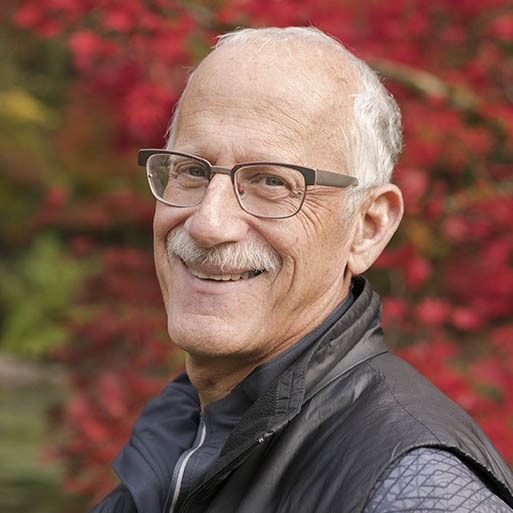My CAR T journey began in 2016. My CLL journey began in 2010 with a prognosis based on my markers of 8 years. For those first six years, I was on wait and watch, 6 months of chemo, ibrutinib and a colon resection for an obstruction caused by my abdominal lymph nodes. By June of 2016, we were out of options and I entered a clinical trial for CLL CAR T at Memorial Sloan Kettering. As my cells were being prepared, I was started on a combination of venetoclax and ibrutinib. That combination was like magic. My CLL was under control and stayed that way for three years, until once again, I relapsed. At this point, my CAR T cells in NYC were too old. I entered a different clinical trial in Seattle. My course was not the usual, as when I presented to the clinic for the CAR T infusion, my CLL had turned into a wildfire, with my platelet counts dropping to near zero. For two months, including three hospitalizations, I was treated with several rounds of chemotherapy to control the CLL and allow a window to open for the CAR T infusion, which occurred on December 19, 2019.
Upon receiving the CAR T cells, I had many, and nearly all the anticipated side effects, including atrial fibrillation and fever. I had Cytokine Release Syndrome, not once but twice. Once in the days following the infusion and once 3 weeks later. I also had a bout of neurotoxicity requiring hospitalization during week four after infusion.
Four months after I presented to the clinic in Seattle, my wife and I returned to our home in Northern California and began my convalescence. For several months I required red blood cell transfusions as well as regular injections to support my low white cell counts. Now almost 1 year after the therapy, my blood counts are relatively normal. However, due to my compromised immunity, I am now receiving monthly IVIG infusions. And, I am still bothered by inflammation in my lungs, as well as neuropathy in my feet. Small issues in the big picture.
Despite any problems I have had, my last MRD (6) by clonoSEQ this past July was clean and clear. Another MRD is planned for my 1-year re-birthday as well as celebrating another year, now coming up on 11 years since my diagnosis.
Dr Larry Saltzman,”Dr Larry” is a Board Certified Family Physician, health IT pioneer, leukemia survivor, and currently the Executive Research Director for The Leukemia & Lymphoma Society (LLS).
In 1981 Dr Larry began his career in family medicine, treating family members of all ages in what had been described as “womb to tomb” continuing care. In that light Dr Larry incorporated midwifery into the OB part of his practice and focused on prevention. In 1989, while experiencing the changes in the administration of medicine, he founded a revolutionary health IT company, SPOTCHECK, linking medical providers to insurance companies electronically in real-time to simplify the complexities of healthcare coverage. In 2010 he was diagnosed with an aggressive form Chronic Lymphocytic Leukemia requiring repeated treatments and surgery for multiple relapses, including participating in multiple clinical trials. As an avid marathon runner always trying to qualify to run in the Boston Marathon, this turn of events lead to involvement with the LLS Team in Training where he and his wife experienced the Boston bombings first hand in 2013. Due to chemotherapy treatments that soon followed, Dr Larry retired from active clinical practice and was soon after retained by LLS utilizing his clinical and IT experience, leading a program to build a national registry of blood cancer patients searching for patterns of care to produce better outcomes with less side effects. This program has launched its social network – The LLS Community – now subscribed to by thousands of constituents and is ready to launch its next phase of medical record sharing between patients and researchers.


















